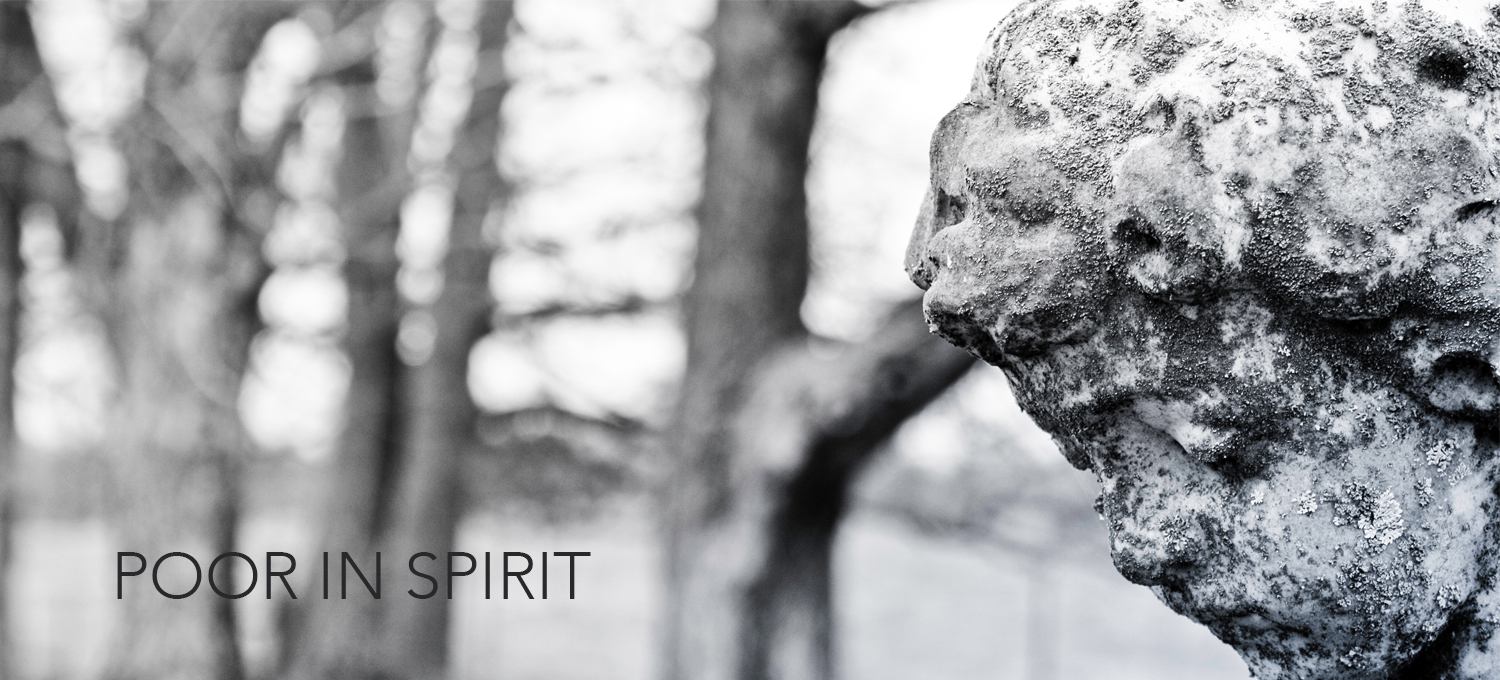Living poor in spirit means recognizing that you need God.
Whether we know it or not, most of us are control freaks. Not controlling others so much, but ourselves. Don’t get me wrong, self-control is a very positive thing. I’m not talking about that. I’m talking about becoming a Christian but never giving Jesus full reign in your life because after all, it is YOUR life.
Maybe it's living in America that has this affect on us, but we can do anything we put our minds to, right? It’s the American Dream that causes us to believe the only necessity to becoming rich, successful and happy is to want it.
So, we set out to be the next rags-to-riches story. We tell ourselves that we can do it, and that all we need in order to make it happen is already within us. If we see small successes, it’s because we did something right. If we see small losses, it’s because we did something wrong.
No matter what life throws our way, we refuse to really let go and ask for help. Choosing instead to fight back alone because, well, we can handle it. The flood of stress, bad news, and loss keeps coming and coming. We keep fighting and pushing and shoving from our corner. With our backs against the wall we still lean on our own strength. Until, as if in defeat, our backs slide down the wall and our knees hit the floor. We hang our heads and we say, "I can't do this. Jesus, I need you."
In that moment, we are poor in spirit. We are no longer trying to do things on our own. We lay down everything and say, "Jesus, come in. I need you. Sorry for not doing this sooner."
"Blessed are the poor in spirit, for theirs is the kingdom of heaven."
Matthew 5:3
If the Sermon on the Mount is Christianity 101, then the Beatitudes are a prerequisite. The Beatitudes are not spiritual gifts. You do not attain one or the other. Rather, the Beatitudes are Jesus' way of describing how Christians are and should be. These are character traits and attitudes of those who follow Jesus. A commonly used illustration is a ladder. When climbing a ladder, you start on the first step, closest to the ground, and then climb up one step at a time. The first Beatitude is the first step of the ladder.
Living poor in spirit means recognizing that you need God. Obviously, if you don’t know you need God, then you won’t look for Him. This is why it’s a preface. If you don’t walk through the first Beatitude then you don’t walk into the kingdom of heaven. Plain and simple.
If you’re a Christian, then you’ve already found yourself poor in spirit to some extent because you’ve heard the Gospel and believe it. But there’s more to it than that.
Jesus rarely teaches in one dimension. In the Sermon on the Mount (the Beatitudes especially), His words are a kaleidoscope. The pieces in a kaleidoscope remain the same, but as you turn it, what you see changes. Knowing this will impact how you approach what Jesus is saying.
When we are born again, Jesus doesn't become a piece of who we are. WE become a piece of His body. Thus, ALL of who we are is in Him. This means we can't have pieces of our identity in anything outside of who Christ is. Our hope, joy, and peace can't be rooted (or partly so) in our jobs, families, dreams, or even the thought of future successes.
Poor in spirit is seeing our needs and recognizing that we can’t meet them on our own. We need redemption from our sins. We need joy. We need peace. We need rest. We can't truly get these things until we first recognize we don't have them.
When we become poor in spirit, we surrender our lives to Jesus. But this doesn’t relieve us of personal responsibility. Jesus doesn't come in and program us into some sort of heaven sent robot. He comes in and transforms us as he uproots every piece of us, little by little, and replants us in His presence. Those things we couldn't handle before are now easy to handle because Jesus is leading us through them.
Our jobs might stay the same, but the way we work them will change. Our dreams and aspirations might be the same, but we look at them as God given passions and not sources of joy, peace, and comfort. Like the kaleidoscope, our lives might have the same pieces, but we will never look at them the same again.
-Andrew Apple


